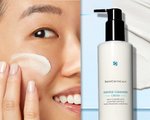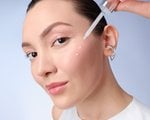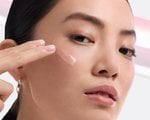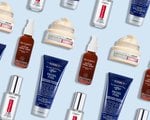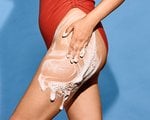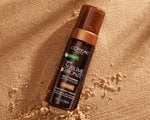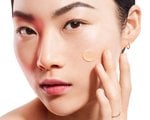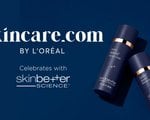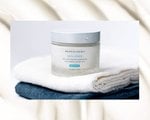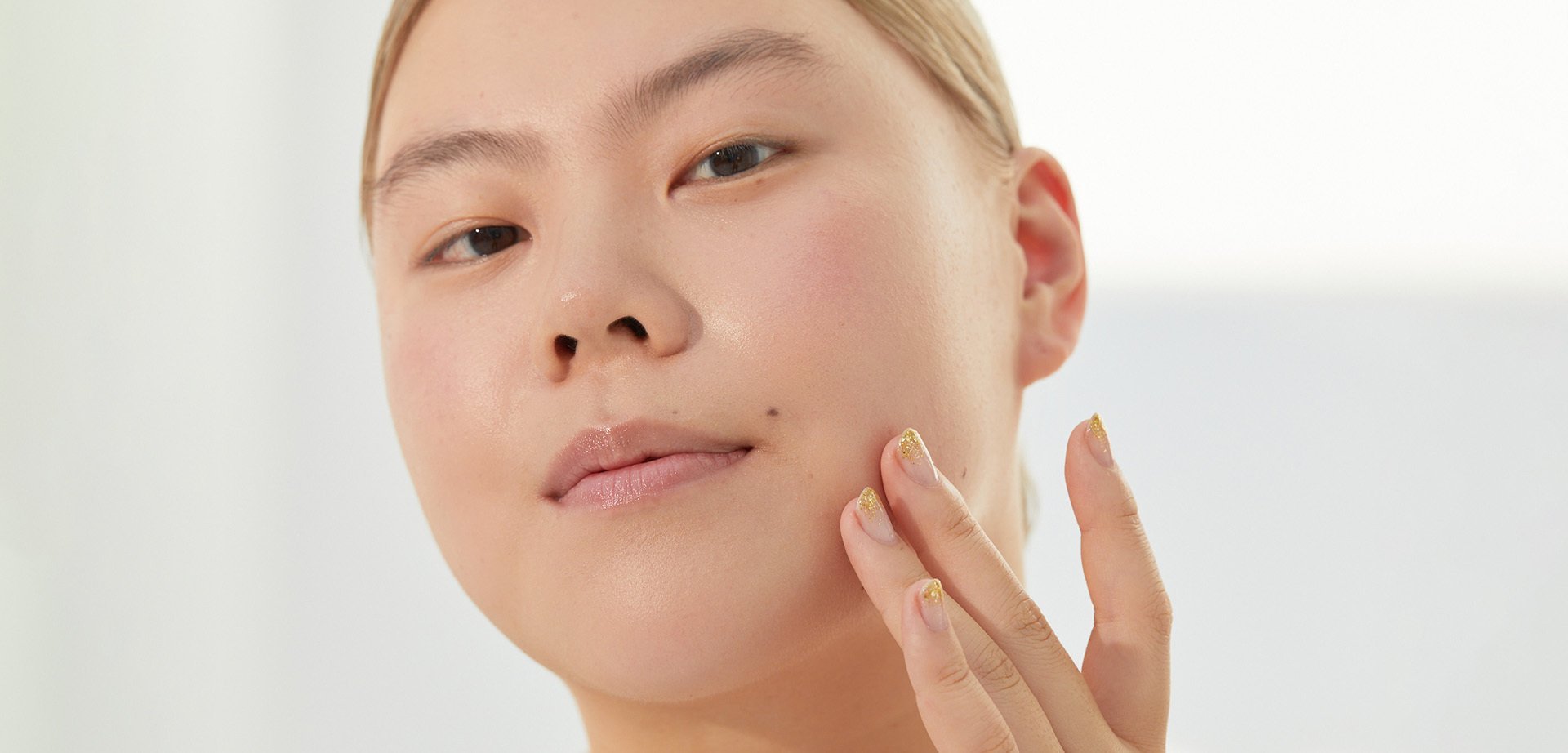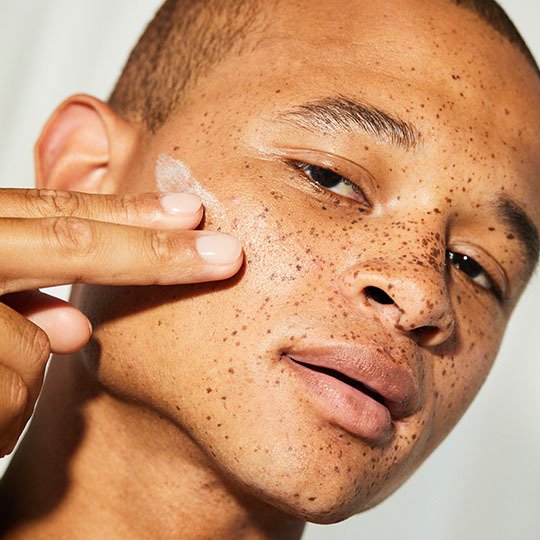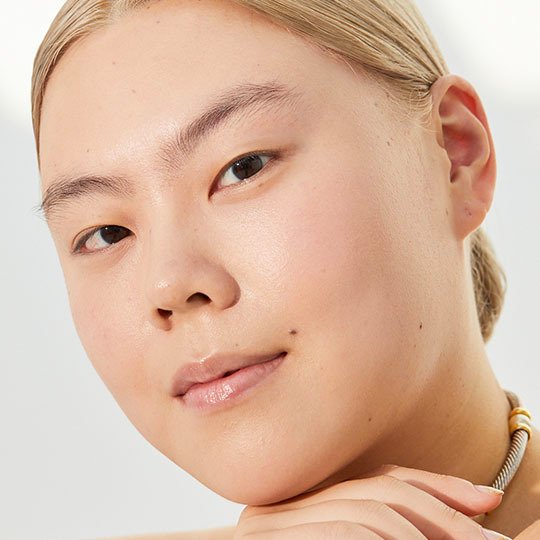How To Combine Vitamin C, Retinol, and Hyaluronic Acid
December 19, 2024
4. Apply sunscreen
No morning skincare routine is complete without sunscreen. Take it to the finish line with a broad-spectrum sunscreen (look for one with an SPF of 30 or higher). If you need a recommendation, try the SkinCeuticals Physical Fusion Defense SPF 50—the tinted mineral formula is lightweight, non-comedogenic, and suitable for all skin types.

Evening skincare routine
Double cleanse
Before heading to bed, wash your face to remove dirt, oil, and debris (along with any makeup or sunscreen you wore during the day). At night, we love double cleansing for a thorough cleanse. To do this, massage a cleansing balm, like the Garnier Erase It All Makeup Removing Cleansing Balm, onto dry skin (or try the vitamin C version for a brightening boost). Then, add water to emulsify the balmy cleanser and rinse with lukewarm water. Then, wash your face again, this time with your morning facial cleanser, to remove any lingering debris.
Apply retinol
The key to adding retinol is to start slow and gradually work it into your skincare routine so you don’t cause skin irritation. If you’re new to the ingredient, we suggest using a product with a low concentration of retinol, like the SkinCeuticals Retinol 0.3, just once or twice a week. As your skin acclimates, you can increase your frequency to nightly usage. If you have dry skin, you may want to consider using a moisturizer with retinol instead. We love the L’Oréal Paris RevitaLift Retinol Pressed Night Cream With Retinol + Niacinamide—it provides deep yet non-greasy hydration and helps reduce the appearance of unevenness and wrinkles.
Moisturize
If you used a retinol serum (rather than a moisturizer), you’ll want to apply moisturizer afterward. Retinol, as we mentioned, can be drying, particularly for those who are using it for the first time. Look for a rich yet non-greasy night cream that can help lock in hydration and replenish the skin. The Lancôme Advanced Génefique Night Cream is an excellent option. It contains hyaluronic acid, probiotics, and ceramides and helps repair the skin’s moisture barrier to promote stronger, healthier-looking skin.

6 Editor-Approved Skincare Products With Vitamin C, Retinol, and Hyaluronic Acid
L’Oréal Paris RevitaLift Triple Power Anti-Aging Face Moisturizer
This drugstore favorite combines pro-retinol, vitamin C, and hyaluronic acid in a gentle moisturizer suitable for all skin types. Apply it to your face and neck for an instant boost of hydration for smoother, softer skin. Over time, you can expect the non-comedogenic formula to help reduce the appearance of wrinkles, improve skin tone and texture, and firm the skin.

SkinBetter Science AlphaRet Overnight Cream
AlphaRet—a unique combination of AHA and retinoids—serves as the star of this hydrating overnight cream. It’s also jam-packed with vitamin C, hyaluronic acid, peptides, squalane, and niacinamide (all of which we’d nominate as skincare VIPs). Apply a thin layer to clean, dry skin before hitting the sheets each night. Within four weeks, you’ll notice your skin appears smoother with a visibly more even skin tone and texture.

CeraVe Skin Renewing Day Cream
The only thing better than a moisturizer with retinol, hyaluronic acid, and vitamin C is one that features sunscreen in its formula, too. Enter: CeraVe’s gentle, skin-smoothing daytime moisturizer. This dream cream provides broad-spectrum SPF 30 protection against UVA and UVB rays, targets the visible signs of aging, and helps lock in moisture to restore your skin’s natural moisture barrier.

African Botanicals Ressurection Cell Recovery Serum
If you’re in a committed relationship with your daily moisturizer, try incorporating the golden trio into your routine with a facial serum. This one contains 0.5% retinol, vitamin C, and hyaluronic acid alongside a slew of gentle botanical extracts. According to the brand, it helps brighten, firm, and balance all skin types, including dry and sensitive.

Beauty Pie Über Youth Vitamin C & Retinol Night Treatment Ampoules
Every few nights, swap out your go-to serum for one of these potent ampoules. Per Beauty Pie, the serum within the single-use ampoules helps to soften the appearance of fine lines to promote a smoother-looking complexion. You can also use it on your décolletage to target the signs of aging that may crop up there.

APLB Retinol Vitamin C Vitamin E Facial Cream
The trifecta strikes again in this multi-tasking moisturizer. Per K-beauty brand APLB, the hyaluronic acid, retinol, and vitamin C-infused face cream helps tackle the signs of aging and boosts radiance while leaving the skin feeling soothed and moisturized.

